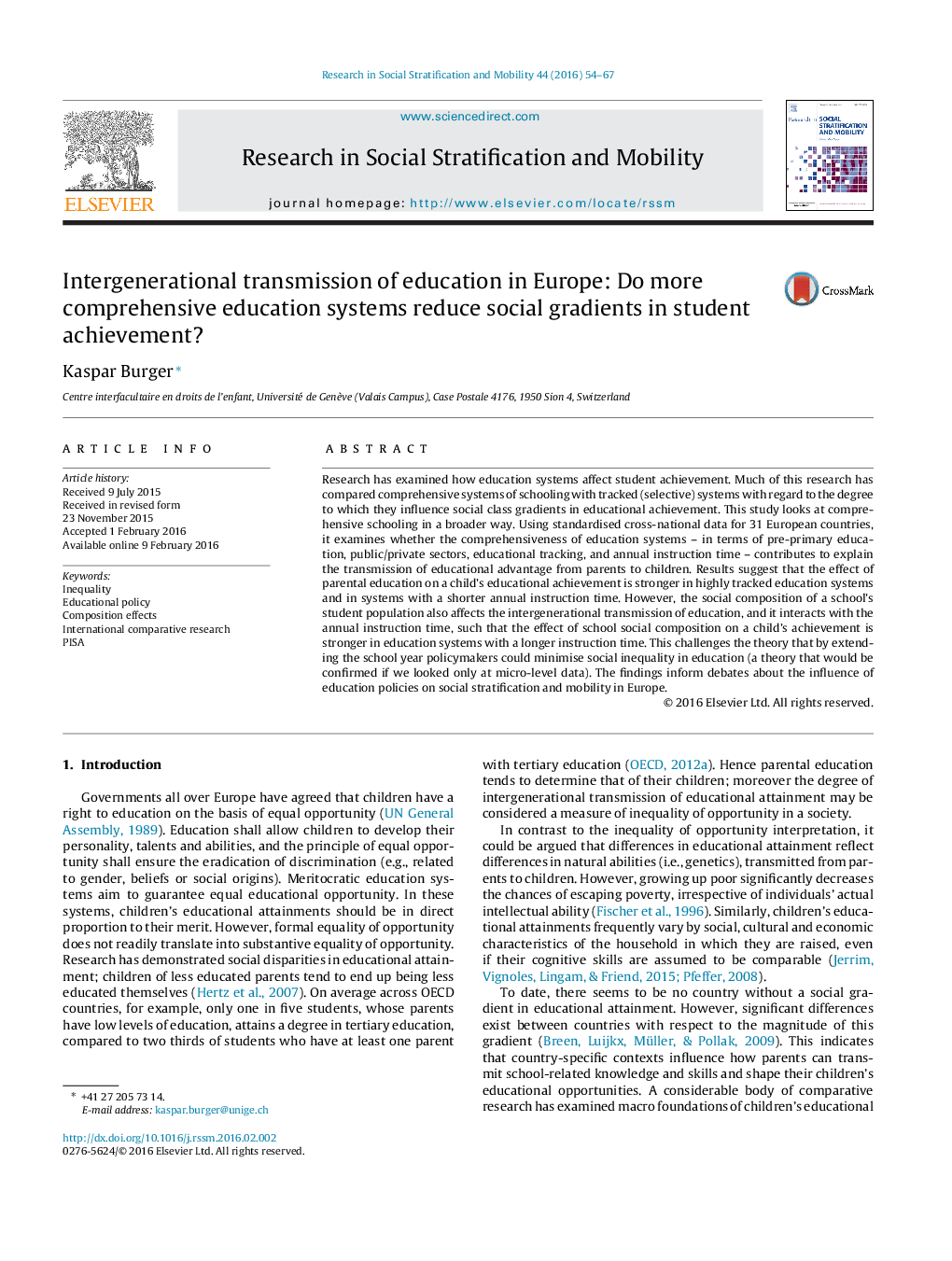| Article ID | Journal | Published Year | Pages | File Type |
|---|---|---|---|---|
| 7409969 | Research in Social Stratification and Mobility | 2016 | 14 Pages |
Abstract
Research has examined how education systems affect student achievement. Much of this research has compared comprehensive systems of schooling with tracked (selective) systems with regard to the degree to which they influence social class gradients in educational achievement. This study looks at comprehensive schooling in a broader way. Using standardised cross-national data for 31 European countries, it examines whether the comprehensiveness of education systems - in terms of pre-primary education, public/private sectors, educational tracking, and annual instruction time - contributes to explain the transmission of educational advantage from parents to children. Results suggest that the effect of parental education on a child's educational achievement is stronger in highly tracked education systems and in systems with a shorter annual instruction time. However, the social composition of a school's student population also affects the intergenerational transmission of education, and it interacts with the annual instruction time, such that the effect of school social composition on a child's achievement is stronger in education systems with a longer instruction time. This challenges the theory that by extending the school year policymakers could minimise social inequality in education (a theory that would be confirmed if we looked only at micro-level data). The findings inform debates about the influence of education policies on social stratification and mobility in Europe.
Related Topics
Social Sciences and Humanities
Economics, Econometrics and Finance
Economics, Econometrics and Finance (General)
Authors
Kaspar Burger,
